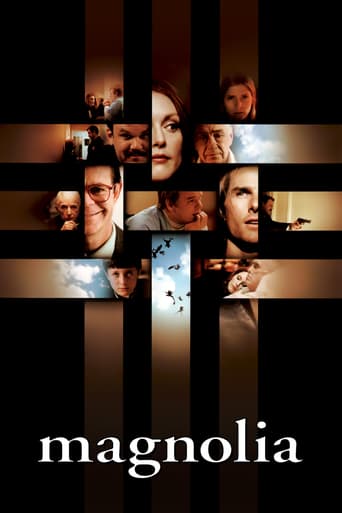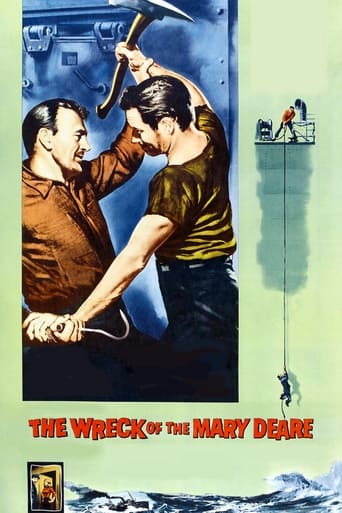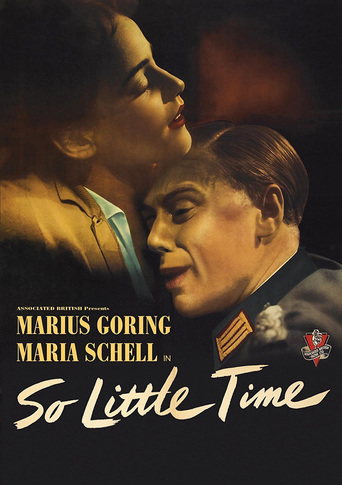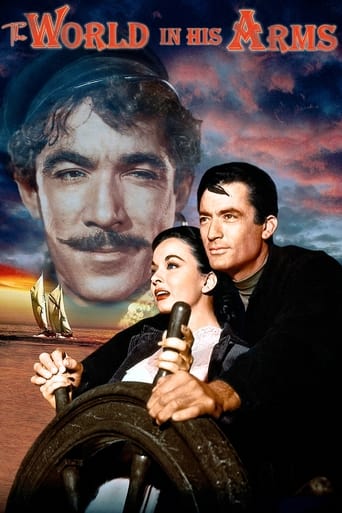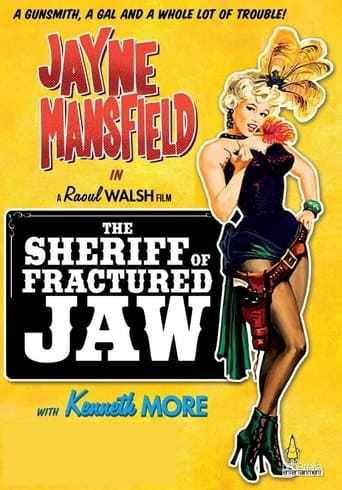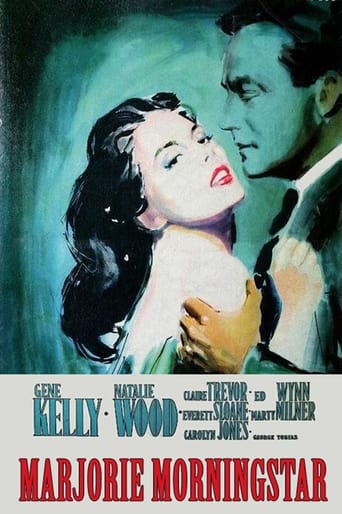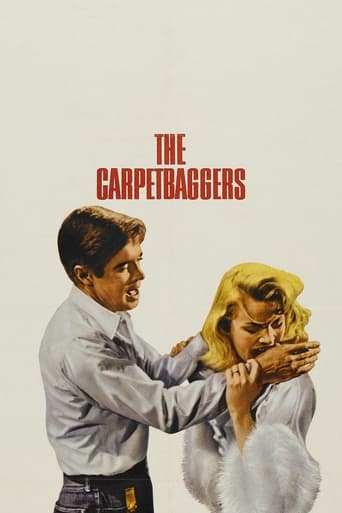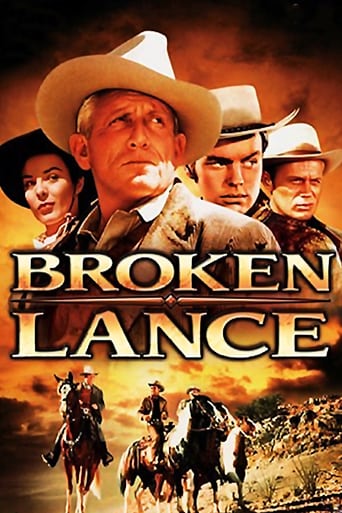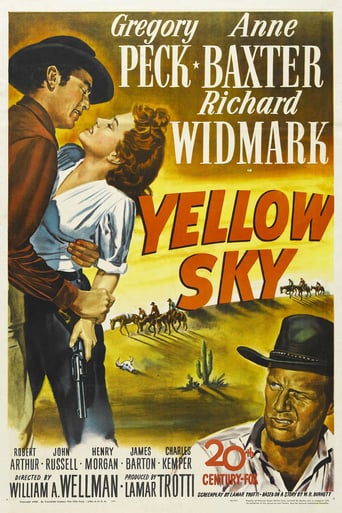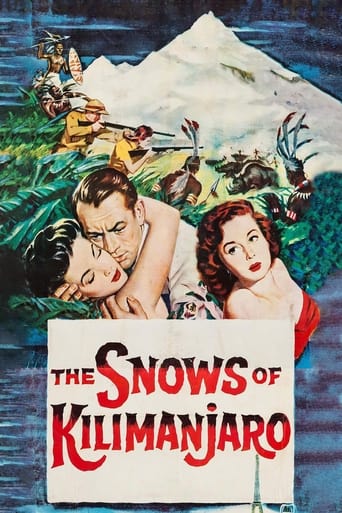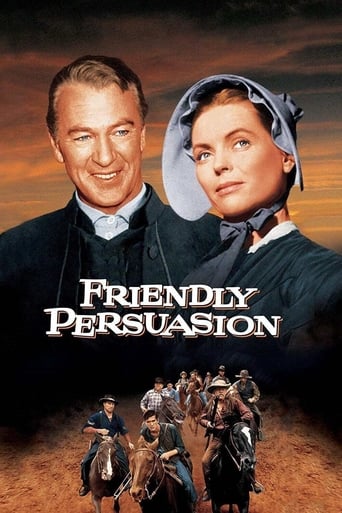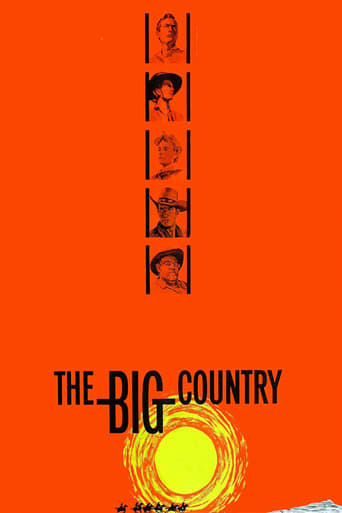


The Big Country
Retired wealthy sea captain Jim McKay arrives in the Old West, where he becomes embroiled in a feud between his future father-in-law, Major Terrill, and the rough and lawless Hannasseys over a valuable patch of land.
-
- Cast:
- Gregory Peck , Jean Simmons , Carroll Baker , Charlton Heston , Burl Ives , Charles Bickford , Alfonso Bedoya


Similar titles
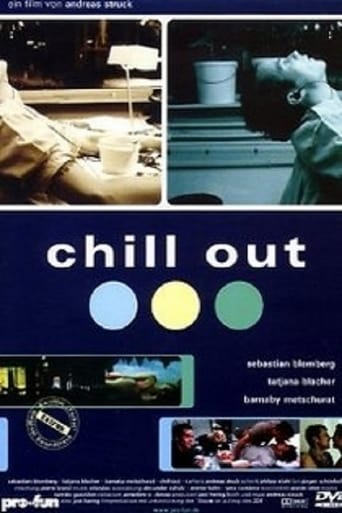
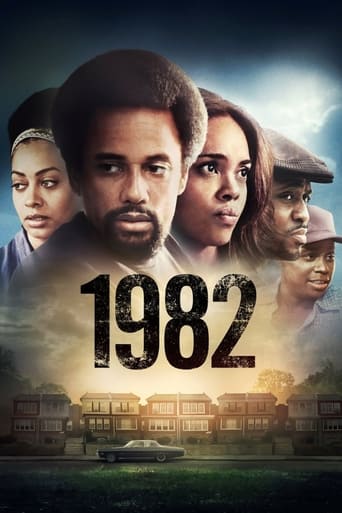

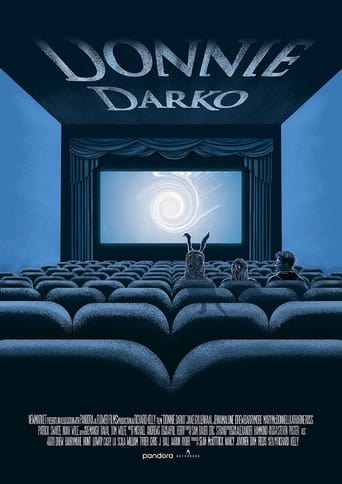
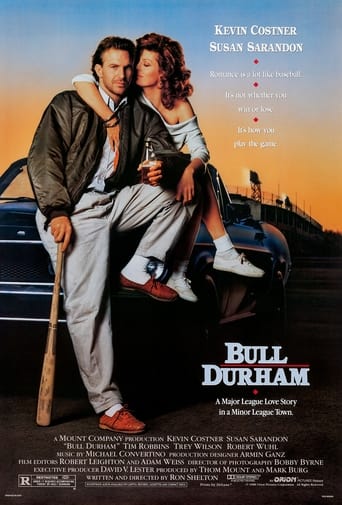
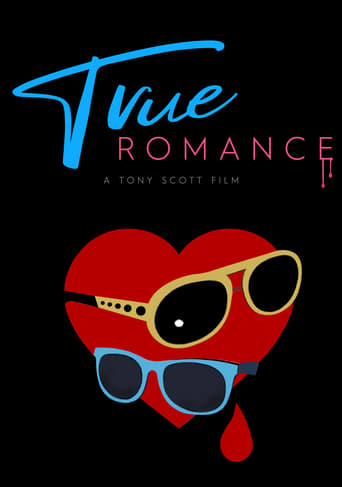
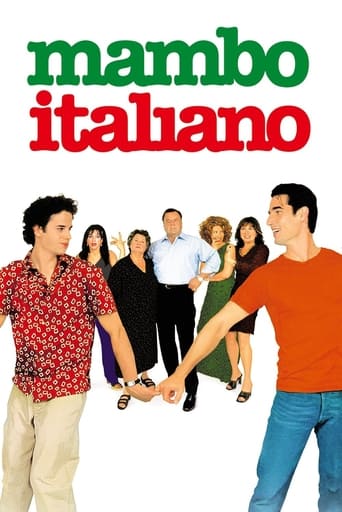
Reviews
Please don't spend money on this.
Entertaining from beginning to end, it maintains the spirit of the franchise while establishing it's own seal with a fun cast
If the ambition is to provide two hours of instantly forgettable, popcorn-munching escapism, it succeeds.
It’s sentimental, ridiculously long and only occasionally funny
A great western. A wealthy man from the east arrives in the West to start a new life. The theme of the movie is set when he encounters many issues including difficulties with the locals and his fiances family. The movie develops the main character well showing that whilst he appears to have no spirit, his own beliefs and experience eventually come forth. The movie culminates when his own convictions and values are put to the test. The main characters relationship with those around him also develops when they find that their initial evaluations were wrong. The movie falls down in the sense that the romances are simply contrived and the motives of the women need more depth. The ending of the movie is a disappointment as I am not a fan of simple face offs.The movie has great acting from the noted actors and actresses Gregory Peck, Jean Simmons, Carroll Baker, Charles Heston, Burl Ives and Charles Bickford. The cinematography was excellent showing grand vistas of both open country and enclosed canyons. It also portrays very well the simple towns and ranches of the lawless frontier. The story line is unusual in showing a different approach of tact and understanding against direct violence. Definitely worth watching by all.
This movie is filled with wonderful stars doing some of their best work. The story is wonderfully tragic. The music is great though it sounds oddly familiar to me. My only issue is a lot of the scenes have these awkward beats to them. It's as if they didn't know where to end them. For instance, at the end, immediately after a tragic murder, our two main characters just look on awkwardly for a minute before deciding to get on their horses and leave. But other it's definitely worth a watch.
This is in response to the many critics who have slated the "The Big Country" for being too long (a famous cry of derision) and for dragging along without the proverbial action. What I cannot understand is how many of these same critics wax lyrical about so many other films that "drag on" for well nigh three hours. I am thinking about some of David Lean's epics, for example ("Doctor Zhivago" and "Ryan's Daughter") which come to mind here. I am not for one moment suggesting that these films are boring or lacking in artistic merit. I am simply curious as to why "The Big Country" is constantly singled out in almost the all the opening lines of the commentaries that have been written.Is this tendency, perhaps, attributed to the fact that the film is a western? Is the western, then, supposed to adhere strictly to the time honoured formula of blood and thunder, hell and leather bang-bang served up in the customary ninety-minute time capsule? Strait-jacketed? Comparisons, I concede, are odious. Pray, allow me a moment to allude to another Western purely in an attempt to illustrate my point.A fellow reviewer on this forum, in his denunciation of "TBC" ("boring, boring") drew comparisons with Sergio Leone's "Once Upon A Time in the West" (a brilliant film, no doubt). In the words of respected critic, Leonard Maltin, the film is, "a languid operatic masterpiece". Maltin however, dismisses "TBC" as "an overblown western". And herein lies the rub!Both these films are thematically rich and complex, layered with gripping sub-plots emerging in all the respective stages of development. Both films are enrich by stellar performances from star-studded casts. There is never a dull moment in each. Even though the viewer may guess the outcome of "TBC", he or she is intrigued as to how the plot will finally resolve itself. This is what sustains the heart and soul of the picture.There is not a single flawed performance in "TBC". The actors remain true to the script. The action, like in "Once Upon a Time ..." and in Lean's masterpieces, is measured and seamless. It represents a study in the concentrated stream of consciousness (personified in the character of James Mackay). This is diametrically opposed by the smouldering temperments of many of the other characters in the fabric of the work; a classic case of antithetical counter-balancing, here. Pound for pound, ounce for ounce, "TBC" stands up to "Once Upon a Time ..." and its counterparts. Why then this prejudice against, "The Big Country"? It intrigues me!
There have been many fine reviews of this film already. Thus, I will mostly confine my remarks to one of the themes of the film: the incompatibilities that most contributed to the breakup of marriage plans between ex- Yankee sea captain Jim McKay(Gregory Peck) and his fiancée Pat Terrill(Carroll Baker), daughter of a cattle baron in the West. But, first, I would like to point out that, although not hinted in the film, the feud between the Hannasseys and Terrills was likely rooted in ethnic and religious bigotry. Hannassey is an Irish name, and the Terrills were most likely of English ancestry. This fits the general peception of the times of Irish immigrants as uncouth ruffians. Also, I should mention that Peck was very reluctant to be under the direction of the perfectionist William Wyler, whom he had worked with in "Roman Holidays", who was infamous for the many 'takes' he required.Clearly, the middle-aged Jim and young Pat didn't know each other very well before Jim made the life-changing decision to retire from his nautical career to begin life as a rancher. Pat soon figured out that Jim was determined to quickly become his own man in this 'big country', not just her father's puppet. Strike one against him. She also discovered that Jim was too aloof to the rough and tumble western ranch culture for her liking. Not only did he show minimal hostility toward the rough hazing reception by the Hannassey 'boys', he refused to cooperate with the baiting challenges of riding a notoriously untamable horse, or brawling with ranch hand Steve(Carleton Heston), who also had the hots for Pat. The latter 2 challenges he eventually met, but only when there was no crowd to make him a spectacle, win or lose. Unlike some reviewers, I don't see Jim's aloofness regarding these challenges as necessarily a sign of superior nobleness. Rather they seem prudent responses. Also, he was much influenced by his father's death in a dual over which, in retrospect, was a rather trivial matter. It was prudent not to show great fear nor anger when faced with a gang of ruffians in an unfamiliar territory and culture. It was prudent not to risk making a fool of himself and risking serious injury before a crowd, including his fiancé, in trying to ride a horse hinted at as being very wild. It was prudent to decline engaging in a fist fight, with possible serious injury, over the seemingly trivial question of whether he had become lost in his solo survey of the ranch. But later, when learning of the kidnapping of his new love, Julie(Jean Simmons), by the Hannasseys, he ignored prudence and played the role of potential hero or dead man. The lines between courage and foolhardiness, and between cowardice and prudence will often be blurred.Various reviewers have made the point that a fundamental difference between Jim and Pat was that Jim believed that what he was really like and had accomplished was more important, whereas Pat believed how others saw you was more important than what you were really like. The film biases our opinion to see Jim's ethos as the better of the two, but remember that Peck was a coproducer of the film. As I see it, in the real world, both are important. Reputation often makes the difference between success and failure in the business world, whether based on fact or fiction. However, Pat should have understood that Jim had prudent reasons, consistent with his aloof personality, for responding to the several baiting challenges he was faced with, as he did. After all, as an ex-sea captain, Jim was used to exhibiting a degree of aloofness. Interestingly, when it came to sharing water rights that he now technically owned, something critical to all his neighbors, Jim was not aloof, declaring all neighboring parties had equal access to his water, as they had, some years ago, under Julie's father. Julie, as a non-cattlewoman heir to her father's land, had been too weak, and too connected with the Terrills to fully enforce the tradition of equal water access. Hopefully, now in league with Jim, and presumably now disconnected with the Terrills as well as the Hennasseys, the pair would be strong enough to enforce their critical rule.

